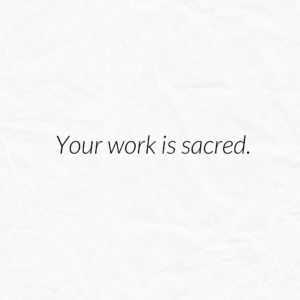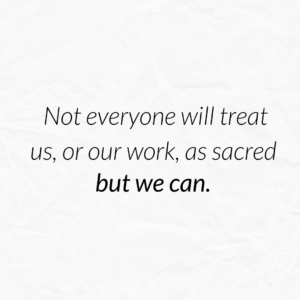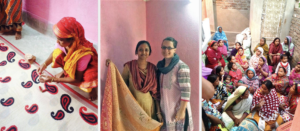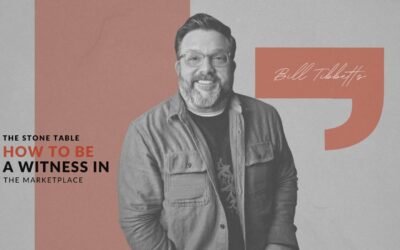In the second episode of the Missional Marketplace Podcast, Erik and Darren discuss the idea that there is no sacred-secular divide when it comes to our work. Read that again – there is no sacred-secular divide when it comes to our work.
Our work matters, and our work is an important part of adding value to other human beings, to society, and it plays a part in God’s greater story for humanity, regardless of what your job is!
If you, like Erik once did, work a job where you are counting small parts for a manufacturing company, understand that by connecting the dots between your job and the mission of the company adds value to the perspective with which you see your work.
Understanding that in Christ, all things have been redeemed (Colossians 1:19-20), we can understand that even our work is redeemed, making it not a secular endeavor, but a sacred one. Just as Erik said, “there is no partition.”

Our work has value; not only to the bigger picture of the company we work for, but also to the world and to God.
God has placed us each in a unique space to work – we each have a role to fill, right where we are at! And of course, there are times when “enough is enough,” but the practical applications that Erik & Darren offer in this episode of the podcast are viable ways to add value to your work, right where you are today.
Starting today, we can begin to ask ourselves this question: “How does this job ultimately add value to human lives and to the world?”
If I’m a janitor at a senior care home, as I once was, how does my work add value to human lives?

Well, if not for my job, the trash wouldn’t get taken out. The kitchen would be a mess of moldy food crumbs, bugs, and other violations of their workplace policies. The residents would be stuck in a facility that smells like old diapers and stale gravy. My job added value because it took care of things that no one else was going to take care of. It allowed others, like the kitchen staff, to continue doing their jobs well, serving food to the residents, without a hindrance or a slowing-down due to cleanliness.
I, as a janitor, was able to realize that my work added value to other jobs in the facility. Therefore, I could work with more purpose, understanding that my job mattered.
Not everyone may treat us, or our work, this way, but we can.

Finally, to take it one step further, we can ask ourselves this: “What can I give through this job? How can I go above & beyond to honor God and add value to those around me?”
This is where I stepped into the grace of God with my job as a janitor. I said, “Lord, what more can I do here?” And He allowed me to bring a new life, a new energy, to the workplace. I was able to smile at people, engage in conversation with strangers & staff, and bring a positive light to those around me. I went out of my way to serve the kitchen staff well, making sure that their workspace was spotless before I left! This was my way of honoring God and adding value to others in the workplace that God had placed me in.
Your job, just like mine, has value. There is no menial or unimportant job, but all work has value because Christ has redeemed it.
In summary, following Erik & Darren’s examples, understand that there is no sacred-secular partition. There is no divide between “secular” work and “sacred” work; rather, all work is a sacred endeavor! Whether you are called to full-time vocational ministry or called to serve as a bus driver, your work has a role in God’s bigger story, your work has value, and you can add more value to the world around you when you better understand that your role at work is sacred.
Missional Moment:
In the second episode of the Missional Marketplace Podcast, we get to hear from Amy, who is working in India as a Business as Mission practitioner with her company ReMade. Amy was stirred to make an impact in her community while her husband was reaching others through traditional work. As the daughter of a business mind, Amy set herself to dream up something to reach the women in her area: for Jesus, through commerce. Amy set up shop repurposing traditional Indian womens’ clothing to sell handbags, scarves, and other pieces of clothing & accessories. She saw the inherent value & dignity in the women in her community and used their giftings as sewers & seamstresses to build the ReMade business and add value to her community. Amy is working in India seeing lives transformed through an entrepreneurial venture that has two bottom lines, one material and one spiritual, and she has seen God provide in both.

Pictures from ReMadeindia.com
Amy took the practical tools we learned from Erik & Darren today and applied them to her local community. She saw value in people, saw a need in her community, and set about pairing those things up to create something fresh for the people around her. She has embodied what it looks like to accelerate the Great Commission through the marketplace – exactly what the Stone Table stands for.




